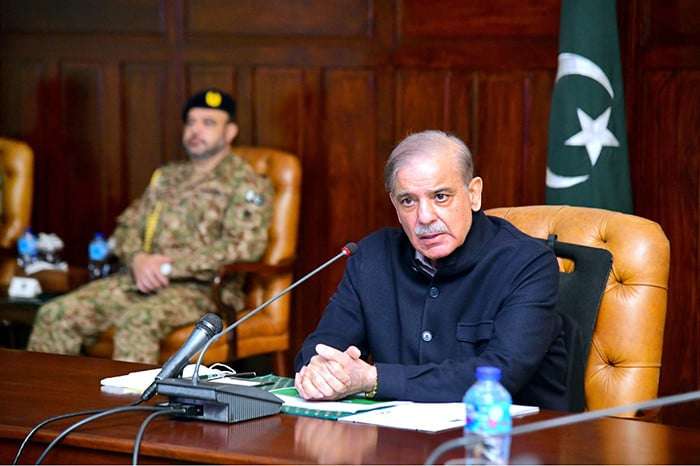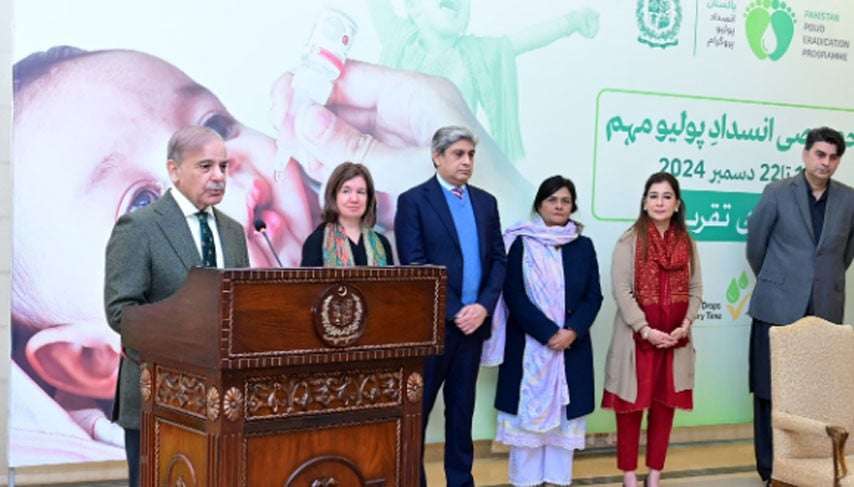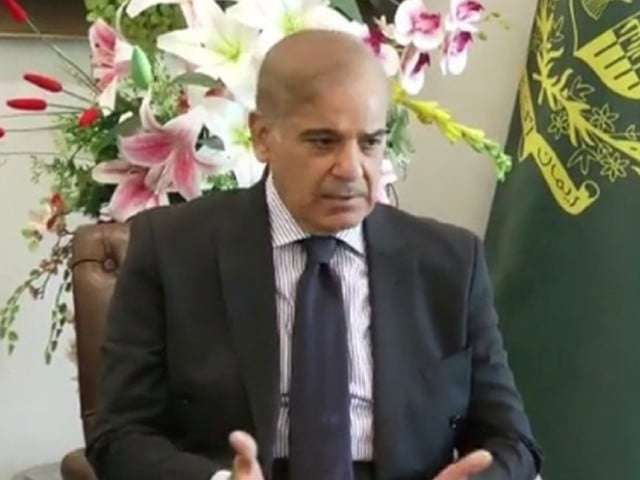Prime Minister Shehbaz Sharif has given new directions for further reduction in electricity rates for consumers in Pakistan, while also focusing on the swift implementation of critical reforms within the power sector. The announcement comes as part of his commitment to ensuring more affordable, sustainable, and efficient electricity generation in the country. During a meeting held in Islamabad on Friday, the Premier emphasized the importance of aligning Pakistan’s future energy projects with low-cost and environmentally friendly solutions, which will benefit both consumers and the nation.
Key Directives from Prime Minister Shehbaz Sharif
PM Shehbaz Sharif’s leadership aims to address two major issues within the power sector: high electricity rates and the inefficiency of power generation. By reducing costs and maximizing the use of local resources, the Premier is pushing for reforms that will make the power sector both sustainable and affordable for the people of Pakistan. Here are the key directives from the meeting:
1. Reduction in Electricity Rates
The most pressing matter discussed at the meeting was the reduction of electricity tariffs. PM Shehbaz directed that the government should take immediate steps to lower electricity rates for consumers. This will be achieved through both the implementation of cost-cutting measures and increasing the reliance on locally available resources for power production.
As part of the initiative, the government will further invest in renewable energy sources, such as solar power, which will significantly contribute to reducing costs in the long term. The Premier emphasized that these actions were essential for offering relief to consumers, especially in the face of rising costs and economic challenges.
2. Focus on Low-Cost Electricity Generation
In his address, PM Shehbaz underscored that future energy projects must prioritize low-cost electricity generation. This focus on affordability is not only aimed at easing the financial burden on consumers but also at reducing the country’s reliance on expensive imported fuel. The Premier noted that Pakistan has significant untapped resources, including solar, wind, and hydropower, which could play a key role in meeting the country’s energy needs at a much lower cost.
Hydropower Projects: A Key Focus
One of the primary low-cost energy sources discussed during the meeting was hydropower. The Prime Minister was briefed on the progress of ongoing hydropower projects across the country. Hydropower remains one of the most cost-effective and environmentally sustainable sources of energy, and Pakistan is well-positioned to benefit from its abundant water resources. The government has committed to completing ongoing hydropower projects on time, ensuring that this resource continues to contribute to the national grid.
The Promise of Solar Power
Another major focus of the Prime Minister’s directives is solar energy. Solar power is seen as an affordable, reliable, and sustainable solution to Pakistan’s growing energy demands. PM Shehbaz directed that efforts to convert existing power generation to solar energy should be expedited. With Pakistan’s vast potential for solar energy, including its abundant sunshine, this shift could significantly lower electricity costs while reducing the nation’s carbon footprint.
3. Immediate Action on Outdated Power Plants
PM Shehbaz Sharif also focused on improving the efficiency of Pakistan’s current power generation system. Many existing power plants are outdated, inefficient, and rely on expensive imported fuel, which increases electricity costs. These plants are also consuming more fuel than necessary, which exacerbates the country’s foreign exchange deficit.
To address this, the Premier directed the immediate shutdown of these inefficient plants. By shutting them down, the government will save on the foreign exchange spent on importing fuel and reduce the overall cost of electricity. PM Shehbaz emphasized that it is crucial to replace these plants with modern, cost-effective facilities that can deliver power more efficiently.
4. Power Sector Reforms: Ensuring Timely Implementation
Reforming Pakistan’s power sector has been a top priority for PM Shehbaz Sharif. He highlighted the importance of implementing timely reforms that would modernize the transmission network and ensure that low-cost electricity is distributed based on production costs. This would create a more efficient and sustainable power system, meeting both current and future demands.
Upgrading the Transmission System
PM Shehbaz instructed that the power transmission system should be modernized to meet international standards. The current transmission network is outdated, and inefficient transmission often leads to electricity losses during distribution. Modernizing the system will improve efficiency, reduce losses, and allow the country to make the best use of low-cost electricity.
Additionally, the Prime Minister stressed the importance of transparency and accountability in the reforms, calling for action against officials who are impeding the progress of necessary changes in the power sector.
5. Swift Completion of Power Sector Reforms
The Premier stressed that all power sector reforms must be completed within the specified timelines. These reforms are crucial for enhancing the overall performance of the sector and ensuring that Pakistan can meet its electricity needs in an affordable and sustainable manner. The government has set ambitious goals to ensure that the energy transition is smooth and the necessary actions are taken swiftly.
The Impact of These Directives on Pakistan’s Power Sector
PM Shehbaz Sharif’s directives will have a significant impact on Pakistan’s power sector, both in the short and long term. The reduction in electricity rates will ease the burden on consumers, especially the middle and lower-income groups, who are most affected by rising energy costs. Additionally, the push for low-cost, local energy generation will decrease Pakistan’s dependence on imported fuel and reduce the cost of electricity in the future.
Moreover, the modernization of the power transmission system will improve overall efficiency, ensuring that electricity is delivered to consumers more reliably and with fewer losses.
The closure of outdated power plants will not only save foreign exchange but also contribute to the reduction of environmental pollution, as these plants often rely on fossil fuels that emit harmful pollutants.
By focusing on reforms and prioritizing low-cost, sustainable energy sources, PM Shehbaz Sharif is positioning Pakistan to meet its growing energy needs while ensuring affordability and environmental sustainability.
FAQs
1. Why is PM Shehbaz Sharif focusing on reducing electricity rates?
PM Shehbaz Sharif is prioritizing the reduction of electricity rates to provide financial relief to consumers and make electricity more affordable, especially amid rising costs and economic challenges.
2. How does hydropower contribute to the energy sector in Pakistan?
Hydropower is a cost-effective, renewable source of energy that helps reduce the reliance on imported fuel. It is also environmentally friendly and offers long-term sustainability for Pakistan’s power sector.
3. What role does solar power play in Pakistan’s future energy plans?
Solar power is a sustainable and affordable energy source, and Pakistan has vast potential to harness it. The government aims to convert existing power generation to solar energy to reduce costs and provide a reliable energy supply.
4. Why are outdated power plants being shut down?
Outdated power plants are inefficient, consume more fuel, and increase electricity costs. Shutting them down will help save foreign exchange and reduce the overall cost of power generation.
5. What are the expected benefits of power sector reforms in Pakistan?
Power sector reforms will modernize the transmission system, reduce electricity losses, improve efficiency, and ensure the availability of affordable, low-cost electricity for consumers.
Conclusion
PM Shehbaz Sharif’s comprehensive approach to tackling Pakistan’s energy crisis is rooted in reducing costs, improving efficiency, and adopting sustainable energy sources. The focus on low-cost electricity generation, including the promotion of solar and hydropower projects, will provide long-term benefits for consumers and the economy. By modernizing outdated power plants and implementing essential reforms, Pakistan’s power sector is on track to become more efficient, reliable, and affordable.



